Reading time: 7 min
In the dynamic world of eCommerce, staying ahead of the curve requires a robust platform that not only meets but exceeds customer expectations. The success of an online store is linked to the features it offers, assuring a seamless and enjoyable shopping experience. Let's explore some must-have features that can elevate your eCommerce platform to new heights.
1. Intuitive UX
User experience (UX) plays a pivotal role in keeping customers engaged and driving conversions by enhancing dwell time metrics. This helps consumers make quick decisions about a product when captivated by the visual design of the platform. Thought-out navigation adds to the positive experience, guiding users from the first click straight to the shopping cart. Together, these elements create a cohesive and effective user journey.
At Cloud Retail, we focus on making the shopping process smoother by adding helpful features to our UX. For example, we use autocompletion for input fields and provide timely notifications for price changes or limited stock. Furthermore, our advanced recommendations algorithms boast an impressive 72% conversion rate from suggestions to the cart. These improvements create a user-friendly and intuitive experience for everyone from delivery personnel to end consumers, boosting the chances of successful conversions.
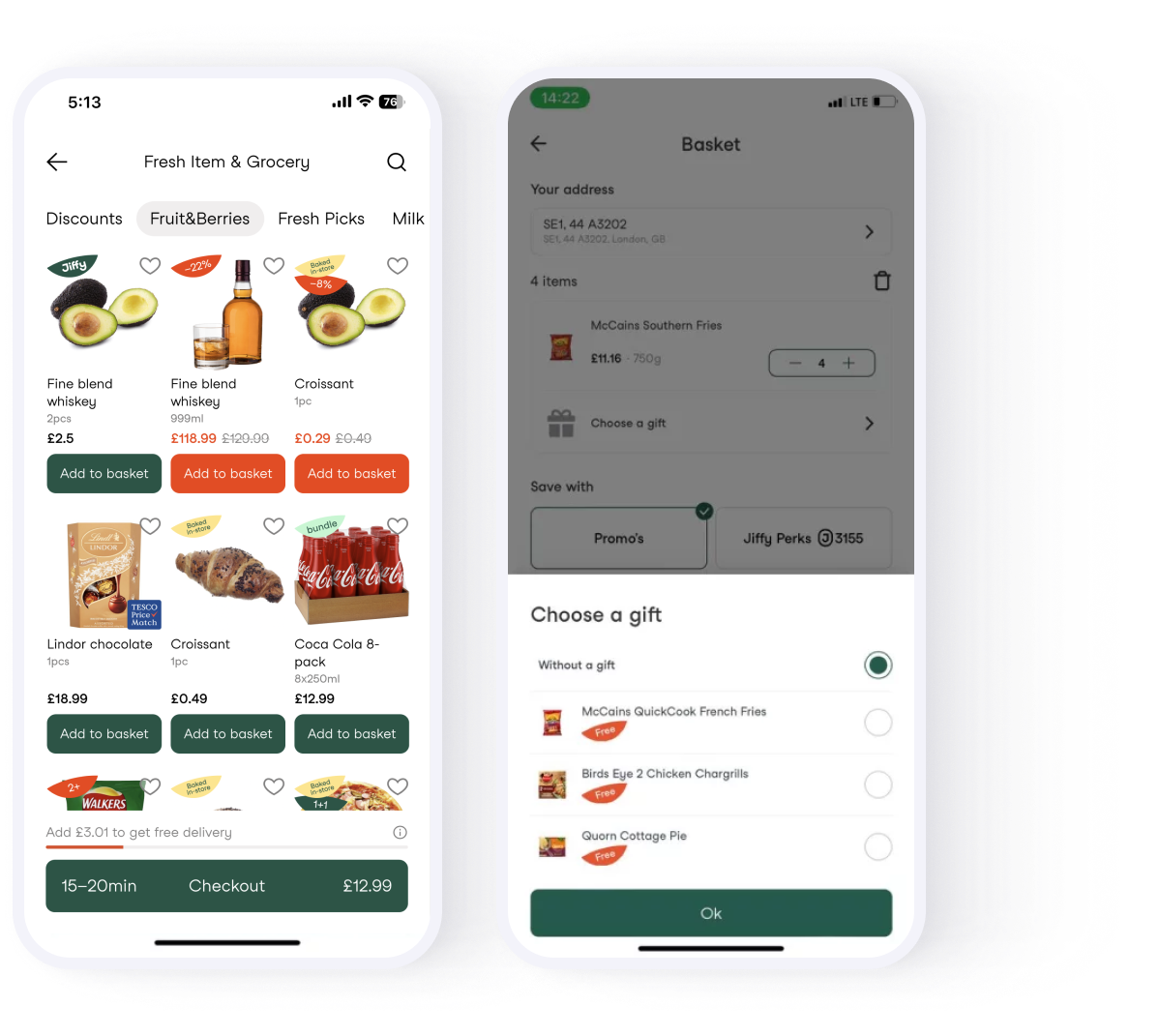
2. Site Search
A robust search and filtering system is crucial for ensuring a seamless UX. Nowadays, customers anticipate swift access to their desired products, with 43% of them heading directly to the search bar when navigating an online store.
Recognising this user behaviour, Cloud Retail has developed a sophisticated product search function. It empowers users to discover products through various filters, encompassing options like discounts and product popularity. Cloud Retail’s clients can fully harness this functionality by establishing custom search options in their apps or websites, facilitating the effortless location of specific items – for example, easily finding a preferred wine by grape variety.

3. Mobile App
In the mobile-first era, a well-designed mobile app is not just a trend but a strategic necessity for eCommerce success. With 73% of commercial site traffic and 63% of eCommerce orders originating from mobile phones, businesses should not overlook the unique advantages a mobile app offers. From fostering brand loyalty to enhancing user trust, a mobile app has become an indispensable tool for eCommerce platforms, assuring they stay competitive and meet the evolving expectations of today's tech-savvy consumers.
Cloud Retail acknowledges that a mobile app is no longer a scaled-down version of a desktop experience. It has evolved into a qualitatively different channel for direct, personalised, and convenient engagement between businesses and customers. In line with this philosophy, we offer our clients a hybrid app comprising a native app as a shell and a site-app inside. The first one handles events sending, notifications, Apple, and Google Pay functions, while the second one focuses on flexibility, aiding in processing up to 90% of new features and updates.
Our app is thoughtfully designed to support localisation and range. This means the mobile app can be customised to meet the unique needs of any business, providing a visually appealing and intuitive interface.
In addition, the app opens up a plethora of marketing possibilities, serving as a powerful tool for promotion. It allows showcasing special offers, codes, discounts, bundled products, recipes, and push notifications (read in the next part about the latter). All these elements seamlessly blend in, appearing native and significantly boosting purchase conversion rates.

4. Push Notifications
While Cloud Retail supports various marketing channels tailored to specific clients’ requirements, push notifications emerge as a pivotal tool for driving sales. Unlike other methods, push notifications grant instant and direct engagement with your audience, assuring timely delivery of promotions, new arrivals, and personalised offers. Leveraging the power of push notifications enhances customer engagement (with an 88% app engagement rate) and encourages swift actions (depending on the content, CTR can reach 30%), making it a key component for amplifying sales through eCommerce platforms.
5. Personalisation
Personalisation stands out primarily as a crucial element for fostering customer loyalty: Statista survey indicated that 62% of customers are inclined to reconsider their loyalty if faced with a not personalised experience. This underscores the significance of a commitment to meeting individual customer needs, ultimately fostering lasting connections in the world of online retail.
At Cloud Retail, we value personalised interactions and leverage innovative strategies to get customer attention. Our platform employs predictive suggestions, ensuring customers receive tailored product recommendations. Notably, after implementing personalised recommendations at checkout, we observed a 10% increase in card additions, effectively reminding customers of potentially forgotten items.
In addition, with integrated Customer Relationship Management (CRM) modules, businesses can collect and utilise customer data to craft targeted marketing campaigns. Additionally, Business Intelligence (BI) analyses this data, providing valuable insights for refining strategies.
The inclusion of personalised search results based on customer navigation history further enhances the relevance of product recommendations, creating a more enjoyable and meaningful shopping experience.
6. Reporting
Reporting and personalisation are closely intertwined, both relying on the use of BI-powered tools. By leveraging them, it becomes possible to efficiently organise and analyse valuable data, transforming insights into action items for business and personalised offers for customers. Consequently, reporting efforts result in improving customer experience and scaling online sales.
At Cloud Retail, we've learned the vital role of reporting through practical experience. That's why our BI is indispensable for eCommerce insights, spanning from operational warehouse efficiency to emerging customer behaviours. Featuring real-time reporting, smart product sorting, and recommendation algorithms, our tools promote data-driven decision-making.
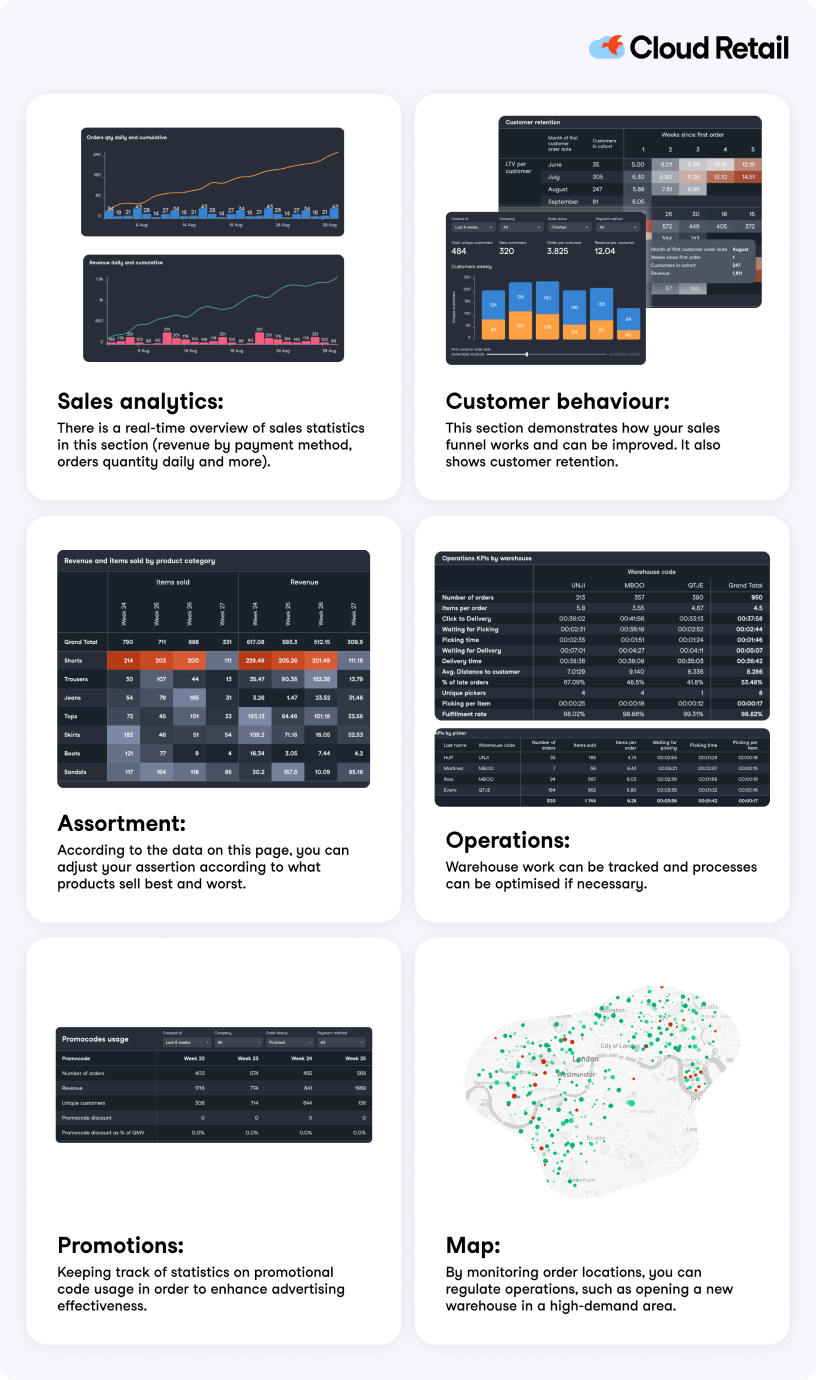
Moreover, our adaptable data storage facilitates the effortless creation of custom dashboards upon request. The interconnected insights allow for visualisation or Excel exports of any metrics, providing businesses with comprehensive tools for informed and strategic growth.
7. Order tracking
Effective order tracking is a crucial aspect of eCommerce, directly influencing customer satisfaction: according to Verte research, an overwhelming 91% of customers actively track their orders, with 19% checking multiple times per day. To meet this expectation and build trust, businesses must offer comprehensive shipping information before order confirmation (e.g. shipping costs, carriers, delivery date, and package insurance) or during the delivery process (e.g. expected arrival time, rider's route and contact information, and real-time delivery status).
At Cloud Retail, we provide clients with seamless integration of the Order Management Systems (OMS) into our delivery backend. This ensures both our clients and their customers enjoy full transparency in order processing, from payment to real-time geo tracking of couriers.
Moreover, the integration with OMS helps streamline the delivery process, resulting in up to a 40% increase in on-time order deliveries. Our frontend tracking widget offers predictable ETA with growing accuracy, delivery status updates through tracking numbers, iframe or API, detailed rider routes, order specifics, and flexible cancellation options. By prioritising these elements, we create a positive and trustworthy online shopping experience for our clients and their customers.
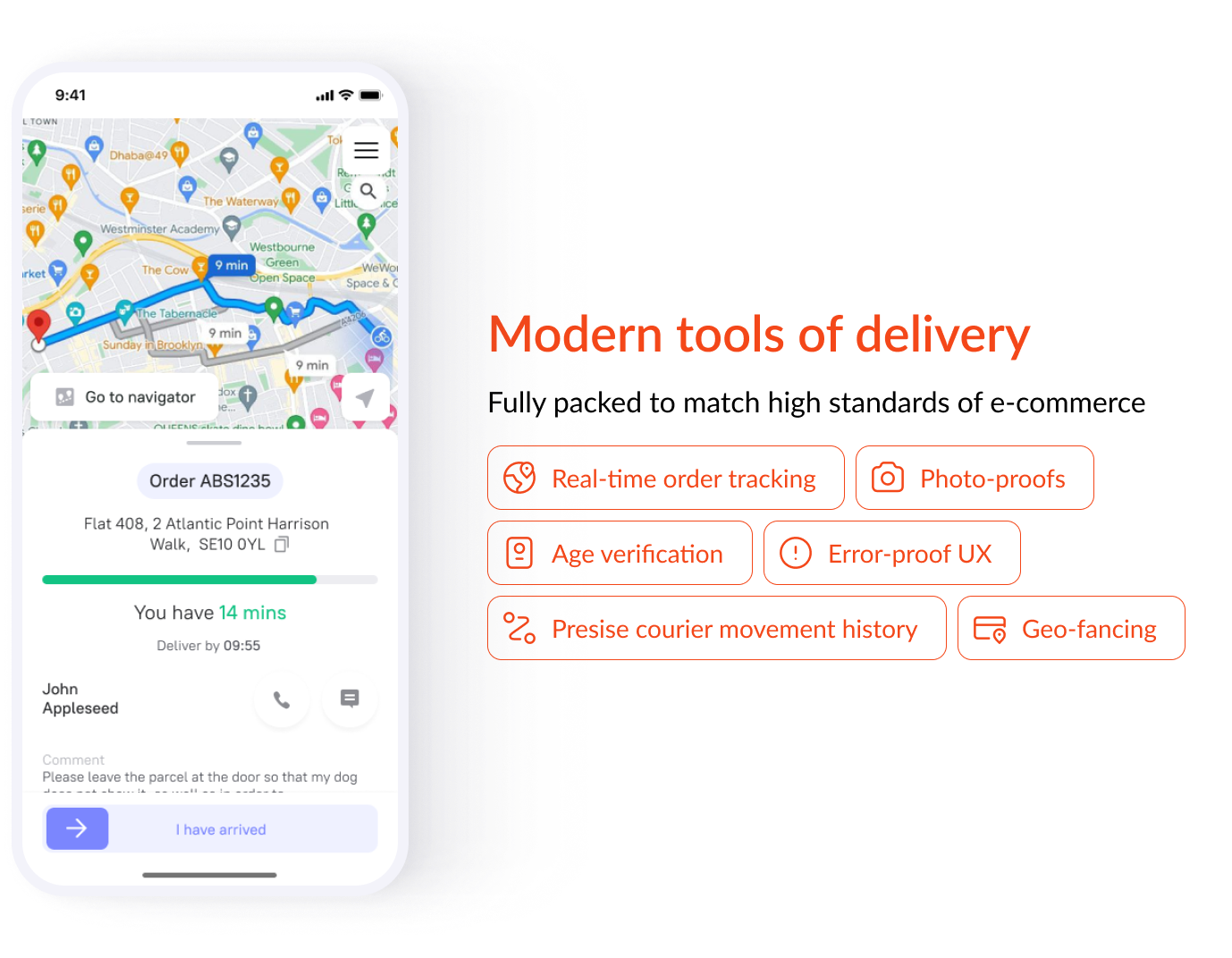
8. Picking Management
The phase between order confirmation and delivery presents challenges such as high picking costs, low picking accuracy, and overall chaos in storage. To tackle these issues, adopting a Picking Management solution becomes essential. These solutions play a pivotal role in optimising picking routes and product allocation, empowering pickers to work efficiently. The focus is on ensuring accurate and timely order fulfilment, thereby upholding delivery promises and elevating customer satisfaction.
At Cloud Retail, we've thoroughly addressed the issues of the picking process. We’ve introduced unique functionality within our store management solution that is easy to connect to the preferred WMS system of the customer. Our Picking Management tool goes beyond conventional instruments as it aids in:
- optimising storage (data-driven shelving positioning and merchandising),
- streamlining picking routes (70% shorter pickers’ run with 6-8 sec per item),
- providing pickers with a user-friendly interface to minimise errors (99.99% picking accuracy),
- seamlessly connecting results with the delivery service.
This approach not only helps eCommerce businesses navigate potential pitfalls during order picking but also contributes to a seamless transition to the final stage of the supply chain.
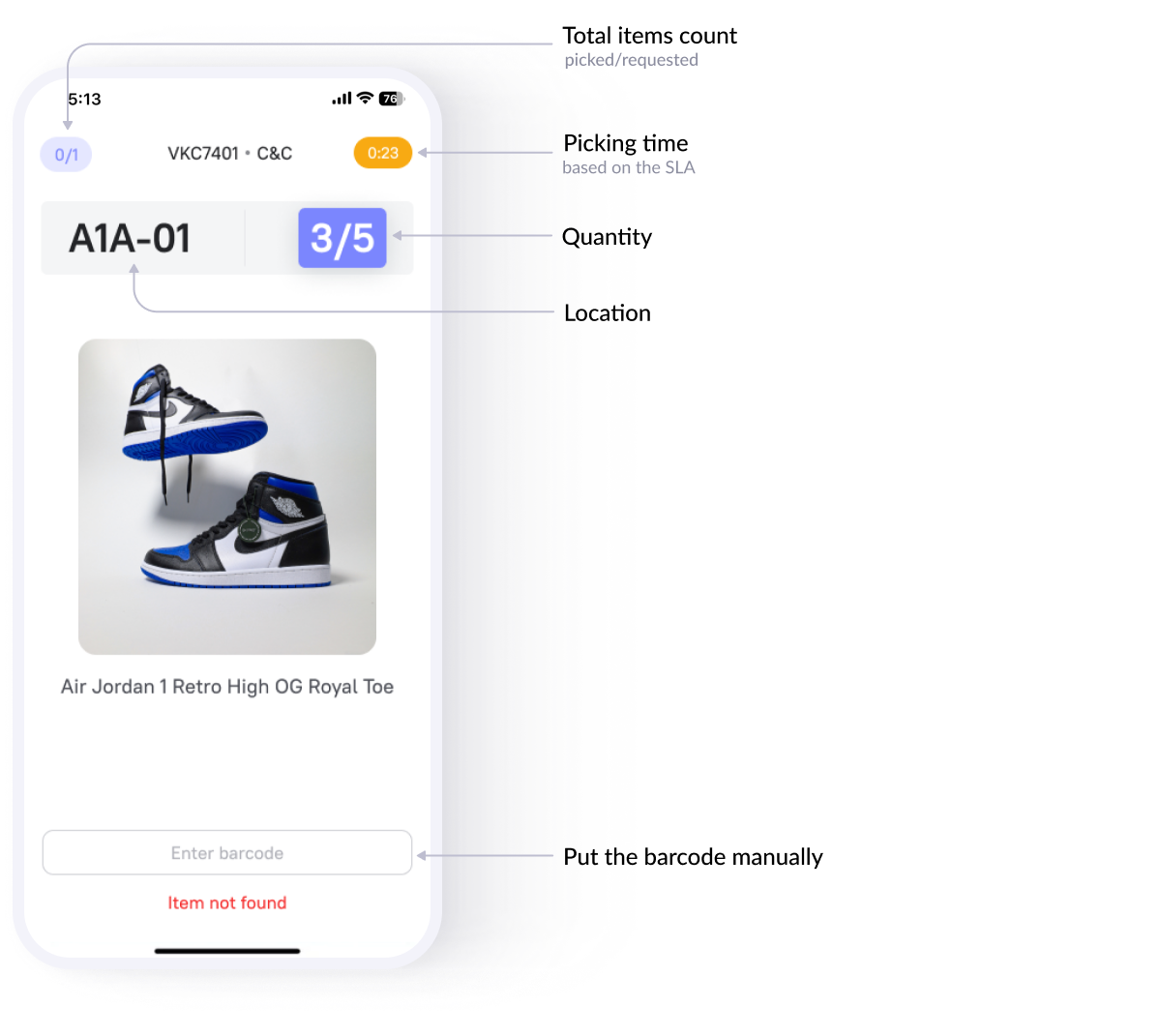
9. Omnichannel order management
Order management is a critical backend process that helps streamline eCommerce operations. Even minor human errors, such as a typo in an order number, can disrupt the entire sales funnel. To prevent such issues, eCommerce order management tools prove invaluable. They assist businesses in minimising manual efforts by consolidating orders from various channels onto a centralised screen for easy trackability. These systems also integrate seamlessly with warehouses, automating inventory updates after each order to maintain precision.
In today's omnichannel landscape, where customers discover products on social media and make purchases through web portals, apps, or marketplaces, Cloud Retail's adaptive store management solution is backed with a unified omnichannel order management system. This flexibility enables us to effortlessly adapt to various purchase sources, providing businesses with a comprehensive solution to efficiently manage orders and deliver a seamless customer experience across diverse channels.
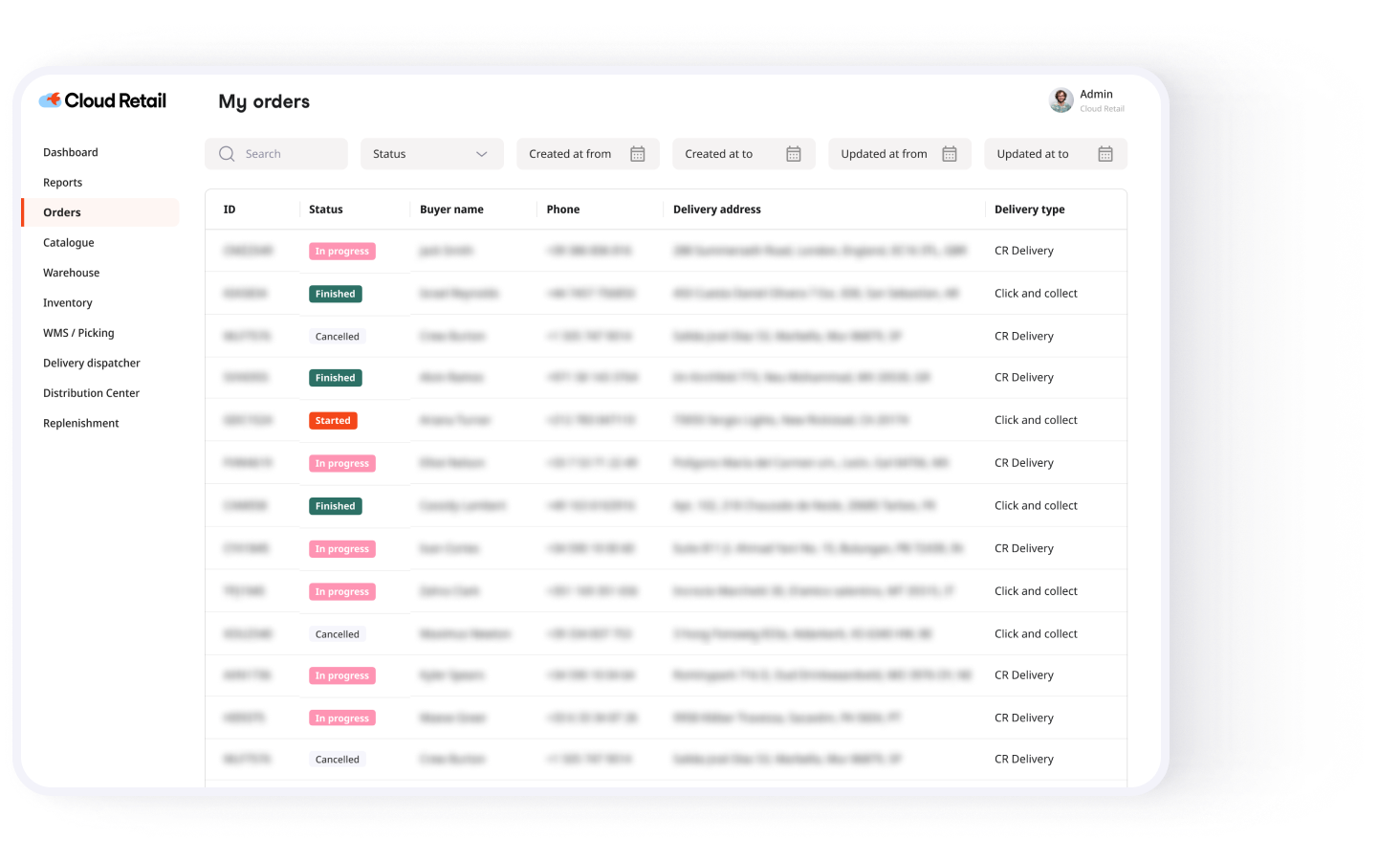
Wrapping up
In essence, eCommerce platforms serve as multifaceted tools, revolutionising the way businesses operate by digitising various backend processes. The diversity in functionalities underscores the uniqueness of each business and emphasises that there isn't a one-size-fits-all solution.
To get the most out of your eCommerce platform, you need a personalised approach. Take a close look at your specific needs and list out all the requirements. This will help you choose the right features for your case. Assess the adapted functions carefully to ensure that your business is on the right track. By doing this, you will effectively address current challenges and move towards sustainable growth in the constantly changing world of online retail.
